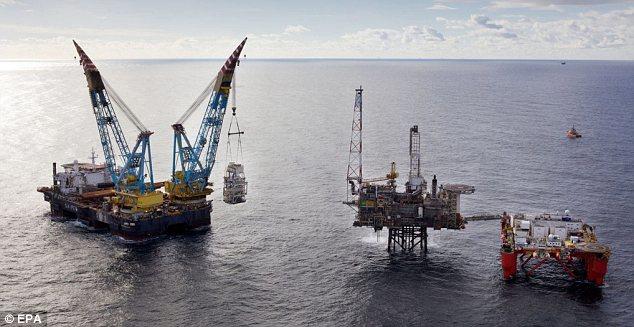
BRITISH GAS PRICES DOWN 40%

British utilities are set to benefit from low wholesale gas prices this summer and beyond even if power companies opt to do a lot more switching from coal to gas to fuel their plants.
British wholesale gas prices have fallen over 40 percent in the past year, as mild winter temperatures softened demand amid a sell-off in crude oil markets to which seasonal gas contracts are indirectly linked, and pressure has been mounting on power companies to lower retail prices for households.
Low crude oil prices have also triggered a surge in gas pipeline deliveries into Europe from Russia and Norway which are oil-indexed, making them cheaper than the cost of gas traded on Europe's hub markets, adding to oversupply in the market.
And U.S. liquefied natural gas exports could add to supply, further depressing UK prices or at least keeping them low.
UK gas prices are currently trading at just below 30 pence per therm and were last at these levels in 2009/2010 when a worldwide recession eroded energy demand.
Consultancy Energy Aspects sees average UK gas prices for 2016 at 29.4 pence/therm, down from its previous forecast of 35.8 pence. Average 2017 prices are seen lower at 26.4 pence.
"For European gas spot prices (Dutch and UK), we saw very low prices during Q3 and early Q4 2009. That would indicate that there is much more downside possible," said Hans van Cleef, senior energy economist at ABN Amro.
Barring sustained very cold weather in the next two months, he said "inventories will remain well filled for the time of the year, and this will be translated in continued price pressure."
Last week, E.ON became the first big British energy supplier this year to cut household gas prices. Utilities often say that although wholesale prices have fallen, there are costs to manage from other parts of a household energy bill, such as distribution and green levies.
SWITCHING
Analysts say gas demand may get a boost from power producers switching away from coal, depending on relative price levels.
"It's only coal-to-gas switching which can support prices this summer should oil prices continue to fall," said Massimo Di Odoardo, research director for global gas at Wood MacKenzie.
Switching occurs when gas prices nudge below rival fuel coal to become the cheapest fuel for generating electricity. In Britain the shift has already taken place with cleaner-burning gas grabbing a larger slice of the power generation mix.
Newer, more efficient UK gas plants are set to displace older coal plants this summer, helped by the UK government's carbon price floor which has made coal more costly to burn.
While gas should oust coal this summer, the dwindling number of coal plants left in operation suggest UK gas prices may not find a floor at the coal-price switching level if gas oversupply continues to grow, an analyst at a major European utility said.
Instead, the UK gas price floor may be set at the lower coal-to-gas switching level found in Europe, where the cost of burning polluting fuels is less, the analyst added.
Greater use of gas by European power plants would draw more supply from Britain through an existing pipeline link, clearing some of the excess and supporting prices at the local hub.
"The downside UK gas price trigger is now at 29.8 p/therm, close to where the relevant market trigger is now for the start of continental fuel switching," said Energy Aspects analysts.
"More significant continental fuel switching is only likely to come in at the 24.0 p/therm level, which is well below where we expect to see prices.
-----
More:
2016: OIL & GAS INVESTMENTS DOWN TO $522 BLN


